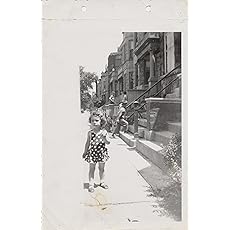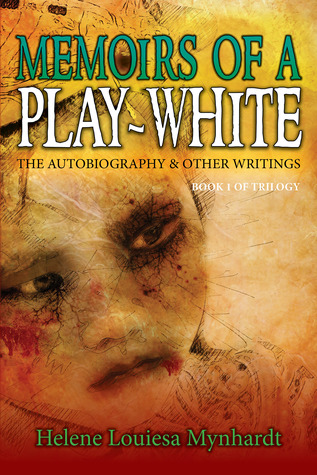
West Side Girl
Anita Solick Oswald
Released June 19, 2018
Autobiography/Personal Essays
Print $14.95
Ebook $4.99
Buy the book on Amazon
About the Book
West Side Girl chronicles the colorful and oftentimes
unpredictably eccentric characters and adventures of Chicago’s West Side in the
1950’s and 60’s. These visceral and nostalgic essays transport you into the
world of a ragtag brigade of migrant and immigrant children finding themselves
in a rapidly changing community. The daughter of a fireman and
frustrated-writer turned-housewife, Anita Oswald portrays life from her
family’s third-story apartment and Bohemian Madison Street restaurant with a
fresh perspective. These stories of equality and nascent social justice are
equal parts outrageous, insightful, funny, and touching.
All royalties from book sales will go to Off the StreetClub, a Chicago nonprofit that supports at-risk youth.
About the Author
Anita Solick Oswald is a Chicago native. Her essays have
appeared in The Write Place at the Write Time, the Faircloth Literary Review,
The Fat City Review, and Avalon Literary Review. She is a member of the Chicago
Writers’ Association and the Association of Writers and Writing Programs. She
is also a founding member of the Boulder Writing Studio, and works with the
Dairy Center for the Arts in Boulder, Colorado. She lives in Niwot, Colorado
with her husband and two cats. Visit the author's website for more information.
A Brief Interview
with the Author
This collection is
based on your personal experiences growing up in Chicago. What made these
stories feel important for you to tell?
For years I have been telling my stories about growing up in
a great time of freedom for children in a neighborhood that was culturally
diverse. It seems especially relevant now to tell those stories of social
change and the benefits of cultural diversity. I remember telling some of these
stories to my daughters as they were growing up, so putting them together in
this collection has also been a way to connect with my family in meaningful
ways, and share that with others.
How do you navigate
the sometimes-blurry lines between truth and storytelling? What kind of research
do you do?
For me, this is not an issue. I check sources if individuals
are still alive or, in some cases, I do not use last names or have altered the
names. I’ve researched family records, photos, newspaper articles, school
records, and memorabilia, have contacted alumni groups and former residents of
my old neighborhood and verified my recollections with relatives, friends, and
former teachers. I never stop researching.
What does donating
your royalties mean to you?
For many reasons, West Garfield Park was a neighborhood in
decline when I was a child. Through organizations, like Off the Street Club,
and the dedication and generosity of staff and donors, we never knew we were
slum kids. This club has meant so much to so many and was an integral part of
my golden childhood. I hope to share that wonderful gift with other children.
Read an Excerpt from
West Side Girl’s “Hot Diggity Dog.”
In July, when
every day seemed like the last day of Pompeii, a free cone sounded like a great
idea. But as we turned the corner our maniacally eager expressions vanished.
The line to get free soft serve cones stretched all the way around the corner
on Madison Street right up to the front door of Solick’s restaurant. It looked
like every kid in the neighborhood had heard about the freebies. I wanted to
throw in the towel and go to Columbus Park swimming pool. I didn’t like vanilla
cones anyway. I wanted a chocolate dip cone. If we hurried, I argued, we’d
still make the last batch of 500 kids before they closed the pool for cleaning.
But the rest of
the gang maintained that free ice cream was worth the delay.
“Come on, Anita,
the line isn’t that long. It’s moving fast.”
I really didn’t
want to go to the pool alone so I reluctantly agreed to hang out and wait my
turn in the heat and humidity of Chicago in July. As we walked past the takeout
joint to claim our places in line, I had time to size up the place. I had to
agree with my mother. Hot Diggity Dog didn’t look too hot. I admired their
entrepreneurship, though. The staff was sweating and working as fast as they
could, taking orders and dishing out soft serve to overheated customers. Their
aprons were stained and the trash cans were overflowing. It was a pyroclastic
event. Money and sawdust covered the linoleum. The owners had developed their
own creative security system. They figured it would be harder to ripoff the
dive if thieves had to pick up the cash and they instructed the customers to
throw their money on the floor. Sweaty dogs spun on the greasy roller
rotisserie – no sneeze guard in sight. Mom was probably right about the
hygiene. I saw people walking past us with cones and Chicago dogs and
remembered my mother’s cautionary tales about dirty kitchens and diseases you’d
get if you weren’t careful. The pungent smell of the dogs and the raw onions
and the bleach smell from the laundromat next door made me gag. I thought about
all the nasty pig body parts that were supposed to be in hot dogs. Maybe those
hot peppers really were cockroaches – were they wiggling? I needed a Coke.



![Blues to Blessings: Moving from Fearful to Faithful by [Webb, Suzette]](https://images-na.ssl-images-amazon.com/images/I/51x4CnacqeL.jpg)
